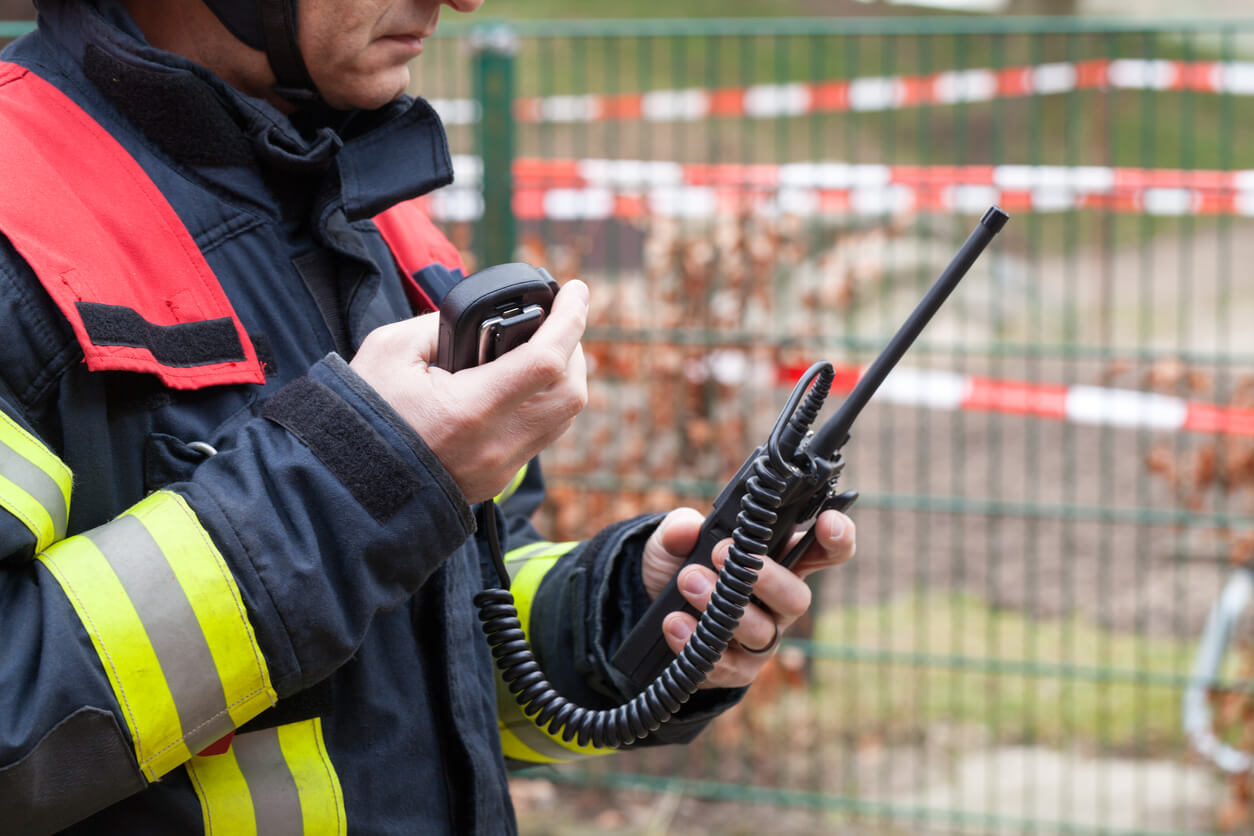
When your first responder team deploys in a crisis scenario, consistent and high-quality comms are crucial for mission success. A public safety network operations center (NOC) can increase the reliability of your network and comms tools.
But what is a NOC, and how could using one benefit your team? Let’s break down its function, three benefits of partnering with one and specific concerns for first responders working in crisis scenarios.
What Is A Network Operations Center?
A network operations center, or NOC, is the support and performance monitoring hub for your organization’s tech assets and networks. NOCs:
- Monitor your internet connection (satellite, cellular or both)
- Ensure proper function of your hardware and software
- Troubleshoot connectivity or device issues with users
- Repair network disruptions and failures, bringing systems back online
Most importantly, NOCs operate around the clock. NOC staff provide 24/7/365 support for your organization, keeping your network, devices and software up and running no matter when (or where) you need them.
In the digital age, NOCs play a critical role in first response. If your team is preparing for deployment, you need your tech tools and network to be in working order to meet mission benchmarks and stay connected to your teammates, headquarters and organization leadership.
Why Do You Need a NOC?
You may think, “Can’t I handle my own troubleshooting and network connection?” While you could take on the 24/7/365 role of network, software and device support, partnering with a NOC can significantly benefit your organization and its operations.
1. Rapid Incident Response
A NOC is responsible for:
- Monitoring your system at all times
- Identifying and resolving potential issues before they escalate
- Resolving unexpected network outages or device malfunctions quickly
These responsibilities produce rapid incident response times, getting you back online as quickly as possible.
But why do NOCs resolve issues as quickly as they do?
- They’re industry experts: NOCs are staffed by hardware, software and network experts every minute of every day—someone with significant industry knowledge is always available to help your team.
- They’re familiar with your system: Even during normal operation, NOC staff monitors your assets for optimal function and proactive incident prevention. They’re more familiar with your system than anyone else.
- They can leverage their workforce: When NOC staff assigned to your team need extra support to resolve a problem, they can reach out to staff handling other accounts, experts with additional experience and their professional networks.
2. Reduced System Downtime
System outages generally occur in two scenarios:
- Scheduled downtime for maintenance, upgrades and testing
- Unexpected software, hardware or network failures
NOCs effectively manage both by:
- Planning maintenance-related downtime during the hours most convenient to your team and providing significant advance notice
- Monitoring your software for potential issues, addressing them before they escalate into widespread system failure
- Responding to unexpected issues anytime they arise, using their expertise to fix unforeseen problems as rapidly as possible
In some industries, downtime management is crucial—first responder teams are an example. If you’re in the midst of an operation, every second without access to your comms and digital tools counts.
3. Increased Efficiency and Optimal Operation
When you use in-house staff to manage your tech assets, you’re limited by:
- Physical space available for staff to work
- The skilled workforce available in your area
- The number of IT experts on your team
But NOCs have larger facilities that are 100% dedicated to tech experts—their teams are bigger and feature technicians with a broader variety of skills. All three characteristics result in increased efficiency for tech management.
Specialized Ops Require Niche NOCs
In general, NOCs are common. They exist in almost every tech industry—everyone from your cell phone company to your smart home products manufacturer uses one.
But first responders have specific tech needs, so they can’t farm out their IT operations to just anyone. So, the NOCs they work with need specialized skills, such as:
- Experience with cellular and satellite networks
- The technical skills to manage both IP and RF technologies
- Advanced knowledge of the organization’s network, hardware and software
- Visibility of and connection with other public safety and tech agencies, which allows them to pool resources during a crisis or a malfunction
NOCs for public safety and first responders must recognize and understand their clients’ missions. Appreciating the urgency and importance of crisis response makes public safety NOCs much more motivated to resolve issues, reduce downtime and create optimized, efficient systems.
Stay Connected Anytime, Anywhere with First Responder Net
A public safety network operations center is a crucial tool in your team’s arsenal—just like your tech and comms assets. If your team needs a NOC to meet your agency’s specialized demands, enter First Responder Net.
IP Access International has served public safety agencies, first responders and worldwide relief organizations for 20 years. With this experience, we’ve developed a network solution that ensures consistent, high-quality network access wherever (and whenever) you deploy.
Our network is secure and reliable, but it’s also supported by a 24/7/365 network operations center that understands the unique needs of first responders and similar organizations. It’s a network of all networks providing off-grid communications and connecting first responder teams around the globe.
No matter the situation, First Responder Net has you covered.